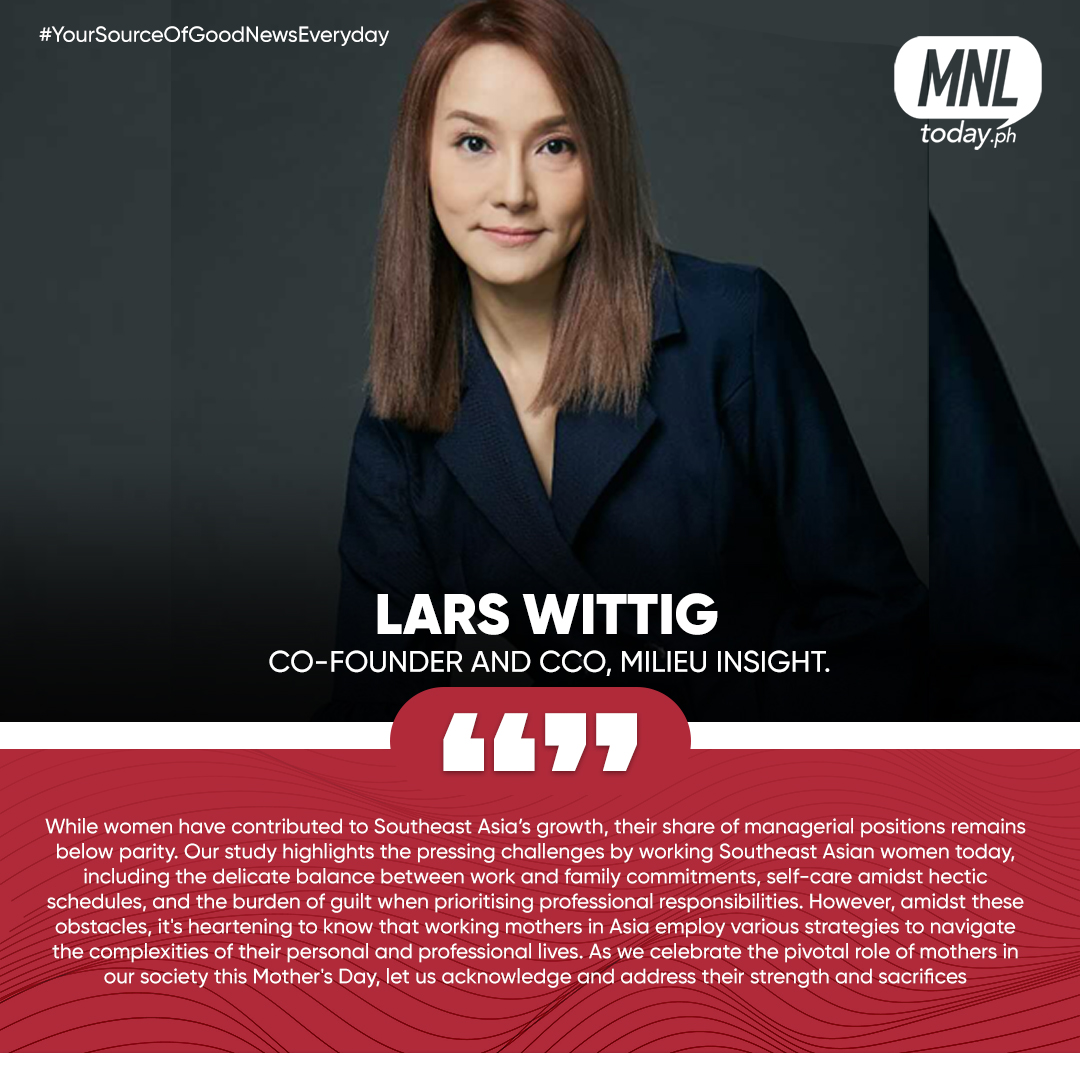Working mothers in Southeast Asia are increasingly having to learn time management techniques to balance professional and personal demands, according to a leading survey software company, Milieu Insight.
While women in the workforce have received countless opportunities, they face significant challenges. According to a McKinsey & Company report, women contribute about 36 percent of Asia’s GDP, in line with the global average but there are still opportunities for women to raise their economic contribution in the region.
The quantitative study conducted by Milieu Insight’s proprietary survey community polls 3,000 working mothers across Southeast Asia covering Singapore, Malaysia, Indonesia, Vietnam, The Philippines and Thailand.

Working mothers in Southeast Asia are finding it tough to balance it all despite the world of work changing. 6 in 10 women in Southeast Asia struggle to find adequate time to manage both work and family commitments.
Similarly, in comparison with other countries, data shows American mothers combine work and family in different ways but when it comes to employment, motherhood becomes a disruption. It takes over a decade for mothers’ full-time employment rate to return to 50%.
Along with these challenges is the overwhelming burden of self-care due to the relentless demands of work and home life. 42% of Singaporeans and Vietnamese women report finding it increasingly difficult to prioritise their own well-being while juggling the competing demands of work and home, exceeding the regional average of 31%. The study also showed that 44% of those surveyed wish more people understood the difficulties they face as a working mother.
The lack of employee well-being policies and practices in Southeast Asia to support a healthy work-life balance is much-needed with 53% of working mothers surveyed feel neutral or dissatisfied with their country’s maternity leave policy. By providing adequate resources for self-care and promoting a culture of wellness can help alleviate the strain on working mothers and contribute to their overall job satisfaction and productivity.
The survey has shown interesting output like, 1 in 5 working mothers across Southeast Asia feel that being a mother has had an adverse impact on their career, with the highest percentage being in Singapore at 40%. This trend may correlate to the fact that 66% of working mothers in the region shoulder significant household responsibilities, including childcare, cleaning, and cooking.

While these women have adapted to be flexible, it also shows that 55% of working mothers in Southeast Asia has learned to embrace innovative time management techniques to navigate the intricacies of work-life integration. With Singapore implementing new flexi-work arrangement guidelines including a 4-day work week option starting from December 1 2024, this new approach offers a progressive approach towards flexibility at work empowering mothers to take more control over their schedules.
68% of working mothers in Southeast Asia believe remote work and flexible arrangements would enhance work-life balance and career growth, with the majority in Singapore (75%) and the Philippines (77%) sharing this sentiment.

Milieu Insight research suggests that with inclusivity, flexibility, and support, workplaces can create a nurturing environment where women could excel in their professional roles while fulfilling their duties as mothers.
The study, conducted via Milieu Insight’s proprietary survey community, offers a comprehensive understanding of Southeast Asian women at work, highlighting key insights and behaviours. Fieldwork was carried out from 2nd to 12 April in 2024.







